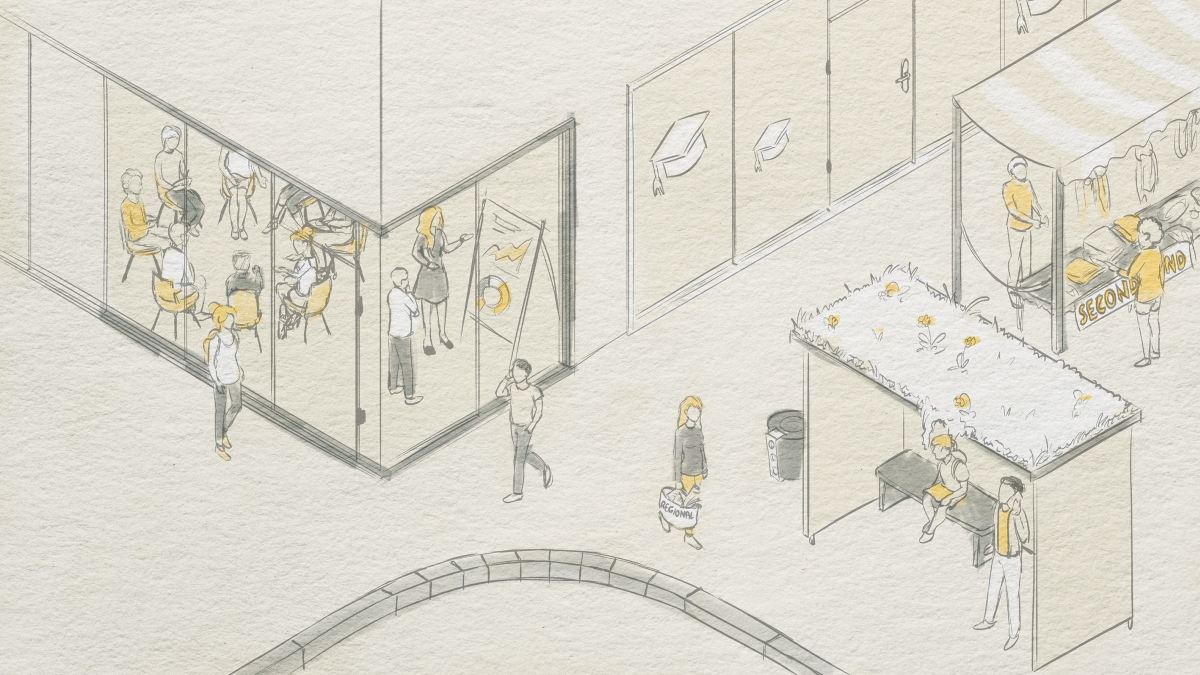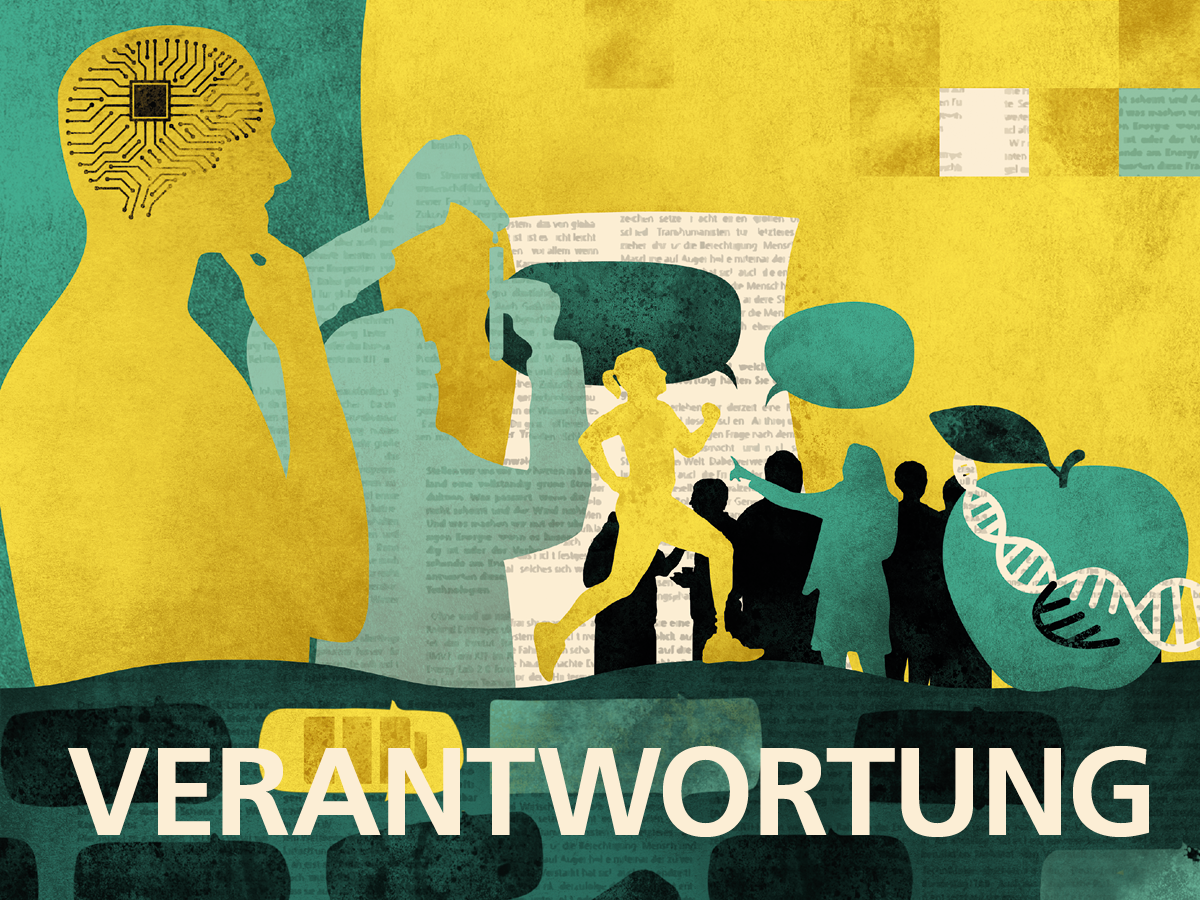Awareness of Responsibility
Offences, such as the Diesel scandal or plagiarism, are not always caused by criminal intent. Complex institutional structures, unclear responsibilities, or ingrained patterns of behavior may also lead to ethically problematic actions. At the Academy for Responsible Research, Teaching and Innovation, ARRTI for short, of Karlsruhe Institute of Technology (KIT), researchers and students learn to detect ethical traps and to assume responsibility.
“Research also determines our everyday life. This may happen in a good or in a bad way,” says Rafaela Hillerbrand. “That is why we need researchers, who are trained to detect and identify ethical problems.” The tool needed for this purpose is called ethical literacy by the Professor for Ethics of Technology and Philosophy of Science. With her team from ARRTI, she wants to sustainably implement ethical literacy at KIT.” We want to enable all those involved in academic education, research, and innovation to assume more responsibility.”
Ethically correct behavior in science cannot just be imposed by regulations or by law. The physicist and philosopher explains why: “Ethics is the reflection on how we behave correctly or wrongly. Of course, this also depends on our action options. And with the help of research and innovation, we are constantly creating new action options.” Hillerbrand is sure: The key to more responsibility in science and engineering lies with all those, who advance these areas every day.
Case Example - Diesel Scandal: Responsibility in Complex Structures
Hillerbrand practically imparts the corresponding competencies. For example, ARRTI is involved in the master’s course on “Integrated Product Development” with specially developed ethics modules. In these modules, students cooperate with an industry partner. As regards ethical matters, every group is accompanied by a philosopher. A much-discussed case example is the Diesel scandal.
What happened: In 2015, it became known that automotive manufacturers manipulated their exhaust gas cleaning systems such that they were switched on during the emissions tests only. “The Diesel scandal perfectly shows how challenging it is to adequately assume responsibility in complex institutional structures in which engineers are working,” Hillerbrand says. “Engineers do not act irresponsibly per se.”
Irresponsible acting is rather caused by unclear responsibility structures, the ethicist says. They are due to dependencies on superiors or to the individual’s very limited influence on the process. And legal regulations are not always sensible. “Many knew that things were fiddled. But many also considered the regulations to be nonsense. Test conditions were so unrealistic that the road emissions test is hardly meaningful,” the ethicist tries to assume the perspective of those involved in the scandal. “For this reason, many thought it would be okay to violate the rules.”

In an interview with Sebastian Burger, Rafaela Hillerbrand discusses how ethics can strengthen responsible research, teaching and innovation.
Listen NowPitfalls in Daily Work
It does not always have to be a worldwide scandal to remind science and innovation to act in a more responsible way. The workshop “Ethics in the Lab” addresses early-stage researchers and covers pitfalls for researchers during daily work. “Scientific misconduct is regulated by law,” says Dr. Alexander Bagattini from Hillerbrand’s team. “But to me as a scientist, this says relatively little about the reasons for which something I do is right or wrong.”
As a course director, he wants to provide orientation. “It is clear that plagiarism infringes on another person’s property,” he presents an example of scientific misconduct. “But it is also about justice. It is about trust, about values that may not be that obvious at first. When working on this, participants gain very important insights.”
Bagattini is convinced that intent and criminal energy play a role in very few cases of scientific misconduct only. Often, it is a combination of pressure – e.g. the pressure to publish – and long-established patterns of behavior, such as careless citation and paraphrasing. “At some point, this is no longer noticed,” he says. “It is therefore even more important to proof oneself against it, as well as possible. And a means of doing so is to reflect on these matters.”
Strong and Weak Arguments
“Ethics in the Lab” is designed to make the participants reflect. In addition to the microlectures prepared at home, the course includes an in-person training of four hours’ duration. It starts with group work, the advocatus diaboli game. A historical case of scientific misconduct is reexamined: In his publication, for which he was awarded the Nobel Prize later on, physicist Robert Andrews Millikan intentionally withheld data. One group now looks for arguments to bring a charge against Millikan, while the other group has to find arguments to excuse this misconduct. The own opinion, and this is important, remains outside.
“The game is about defending a position with arguments,” Alexander Bagattini explains. “May it be my own position or the position I want to attack. In this way, persons learn to argue.” And this is of fundamental importance to ethics, because there is no right or wrong in the scientific sense, but only better or weaker arguments to justify action. And there are criteria, on the basis of which the quality of arguments can be assessed.
“I cannot tell people which value assumptions to make. But I can examine their arguments,” Bagattini says. This is what philosophy is predestined for. Just like natural sciences, philosophy is based on rational principles and reason. “What matters is methodological stringency. We check how strong or weak arguments are. And we draw attention to aspects which were not considered before.” This is what ethical literacy is about: The capability of being aware of one’s own responsibility and of questioning and adapting the own way of acting.
Kai Dürfeld, August 15, 2023

The issue 2/2023 of lookKIT focuses on the topic of responsibility in research and innovation.
Read Magazine

